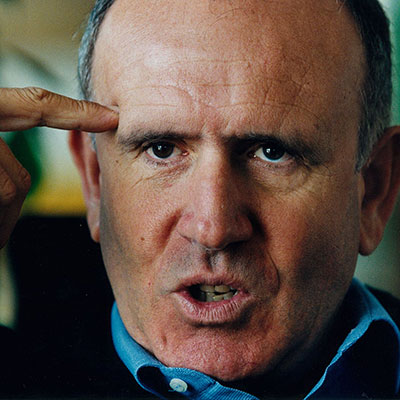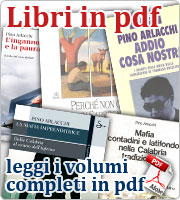Lyubov Lyulko
Director of the Federal Service for Drug Control of Russia Viktor Ivanov paid a visit to Central America, visiting Mexico, Cuba, Nicaragua, El Salvador and Panama. There he met with foreign ministers, police chiefs and the Attorney General. Ivanov proposed collaboration and a plan to combat drug trafficking.
The official theory of the reasons for this unexpected visit was struggle with increasing traffic of cocaine into Russia. However, if one considers that of the 940 tons produced annually only three get into Russia, this reason looks a bit farfetched. Why did Ivanov travel to Latin America?
Viktor Ivanov thinks big, and he is not among the pessimists who believe that it is impossible to combat drug trafficking. He criticized the Russian plan "Rainbow" implemented in Afghanistan, and in alliance with the Italian MEP Pino Arlacchi has developed an international plan "Rainbow-2". (Arlacchi is one of the world's experts in the fight against drug trafficking. In the past he served as Deputy UN Secretary General and head of the Office on Drugs and Crime of this organization, therefore the initiative was considered by the European Parliament and the UN). As a result, the "Plan Ivanov - Arlacchi" was granted a status of an official EU action plan.
Encouraged by this victory, Ivanov decided not to stop there and went to Central America. It should be considered that the governments of the countries such as Mexico and Panama, leading a bloody war with drug lords, would not invite the chief "Russian fighter against drugs" for no reason. It is important to emphasize the international recognition of the Russian official. As a result, the intelligence agencies of the region to varying degrees have taken the first step towards cooperation with Russia.
Russia has offered Latin American countries to "develop the international plan to combat drug trafficking and prevent drugs from spreading around the world," said Director of Federal Drug Control Service at the conference at the National Institute of Criminal Law in Mexico. Ivanov added that Russia and Latin America can become leaders in the implementation of the "new approach based on national and regional development of the global drug policy," and no less than eradicate cocaine production on the continent. This is a big statement, but this is the way the problem should be approached.
The plan provides for the exchange of information on the activities of drug gangs, coordination of efforts to eliminate them, the organization of special courses for the police in Latin America and sending them for training in Russia.
Head of Federal Drug Control Service is also categorically opposed to a broad campaign to legalize drugs, organized in Latin America at the highest level. Presidents of Colombia and Guatemala are in favor of the measure. According to Ivanov, the proposal creates a dangerous illusion that the problem can be solved in this way. He noted that this "well-planned disinformation" comes from the stakeholders in the region, first of all from drug lobby in the parliaments.
The proposals were evaluated both at the political and professional levels. "We are grateful for the efforts by the Russian government to strengthen the fight against drug trafficking in Nicaragua," said the president of the country Daniel Ortega. He stated that in cooperation with Russia a training center for narcotics police will be built in Nicaragua.
Minister of Foreign Affairs of El Salvador Hugo Martinez said that the initiative will be useful at the regional level. "Russia's experience in this field can help the fight against drug trafficking, not only in El Salvador but also within the Central American Integration System (Belize, Guatemala, Honduras, Dominican Republic, Costa Rica, Nicaragua, Panama and El Salvador)," he said.
He mentioned that the courses in his country will start in June, and officers from Guatemala, Honduras, Nicaragua and Costa Rica will be trained as well. Martinez has made an important observation that the trainings will be "probably financed by Russia." The word "probably" can be safely stricken out.
Ivanov compared his plan to similar plans of the U.S., the most famous of which are the "Plan Colombia" and the "Merida Initiative" (for Mexico). In his view, Americans rely on military, police or administrative and legal actions and entirely exclude the elimination of the social causes of drug production, such as unemployment and poverty.
Plan "Rainbow-3 'for Central America, first, for the first time raises the status of the problem of cocaine production to the level of a security threat for the international community and should be considered in the UN Security Council. Second, it involves the development and implementation of programs for the economic recovery and job creation in the region. For example, a similar program in Afghanistan was mentioned that involves the creation of nearly two million jobs.
In addition, Ivanov quite rightly believes that the U.S. pursues a policy of "double standards" in the fight against drug trafficking. If in Central America they conduct real operations, they prefer to ignore the Afghan opium plantations. According to Ivanov, in 2008, Americans reported the destruction of only three percent of the poppy fields "mainly by mechanical means."
Latinos agree with this criticism, and even go further in their accusations. Many politicians and political analysts believe that the U.S. Drug Enforcement Agency (DEA) violates the sovereignty of the countries where it operates. Venezuelan Interior Minister Tarek El-Aissa said that after the termination of cooperation with the DEA the seizure of drugs in his country has doubled.
Bolivian authorities also suspended cooperation with the DEA. Columbian economist and political analyst Ramon Gimeno believes that DEA is conducting subversive activities against the left and the anti-American politicians rather than fighting against drug trafficking.
It is unclear how realistic Ivanov's plan is. It will depend on the volume of Russia's finance and real intentions of local authorities to put an end to drug trafficking. Cocaine is very expensive in Russia - from three to six thousand rubles per gram ($100-$200), and is consumed mostly by well-off residents of Moscow, St. Petersburg and other major cities.
In the total volume of drugs consumed in Russia the proportion of cocaine is three percent, and, according to the Federal Drug Control Service, the volume of its exports to Russia is increasing annually by 25 percent. The terminal station is West Africa, then the traffic goes to Russia via Eastern Europe.
Of course, cocaine in Russia cannot survive the competition with heroin, and the true purpose of Ivanov's visit may be quite different - to increase the presence of Russian security services in the legal position near the borders of the United States. This is definitely the right step considering similar activities of the Americans near Russian borders. If Ivanov traveled to Central America with this goal, the result is highly commendable.





 Non sono una persona complicata. La mia vita pubblica ruota intorno a due cose: il tentativo di capire ciò che mi circonda, da sociologo, e il tentativo di costruire un mondo più decente, da intellettuale e militante politico.
Non sono una persona complicata. La mia vita pubblica ruota intorno a due cose: il tentativo di capire ciò che mi circonda, da sociologo, e il tentativo di costruire un mondo più decente, da intellettuale e militante politico.




